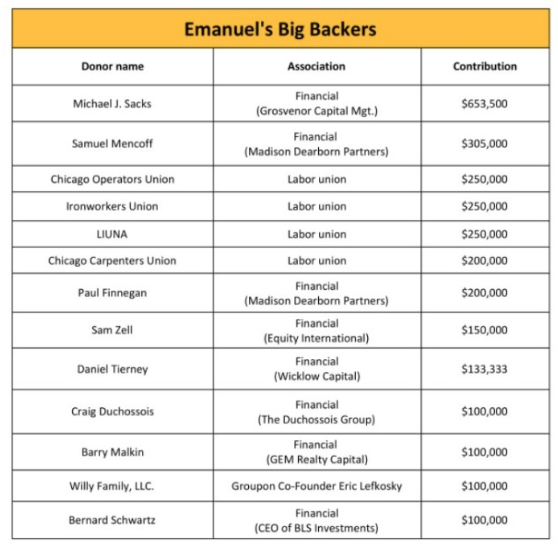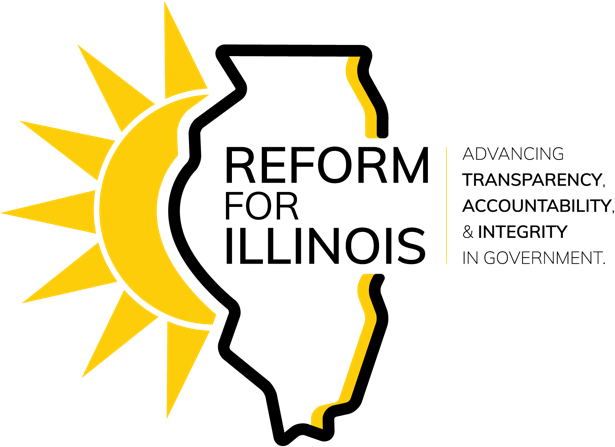Follow the Money: With Emanuel Out, Where Do the Big Checks Land?

Chicago Mayor Rahm Emanuel’s stunning announcement Tuesday that he will not seek a third term has upended a packed campaign field and freed up a powerful donor base for current — or incoming — challengers to tap.
The two-term mayor, former congressional leader and top White House insider possesses a nearly unmatched ability to pull in large campaign checks. The $8.3 million Emanuel last reported in his campaign fund was likely just a small fraction of what he could have brought to bear as his tough re-election battle gained steam. The cash would have been needed to dominate the airwaves and fuel an expansive ground operation as a bulwark against an onslaught of criticism from candidates wooing the city’s various voting blocs.

Among Emanuel’s biggest contributors were investment firm magnates, including Michael Sacks of GCM Grosvenor (contributed $653,500), Sam Zell of Equity International ($150,000), Samuel Mencoff ($305,000) and Paul Finnegan ($200,000) of Madison Dearborn Partners, and Daniel Tierney of Wicklow Capital ($133,333). Barry Malkin, the Willy Family, Inc., and Bernard Schwartz have also each given $100,000 to his campaign. Alongside the finance sector, Emanuel has drawn major support from the Chicagoland Operators Union ($250,000), the Ironworkers Union ($250,000), the LIUNA Union ($250,000), and the Chicago Carpenters Union ($200,000). Now, Emanuel’s exit has caused a flurry of conjecture about what comes next and where big donors will turn. |

Up until Tuesday, challengers were struggling to find significant donors willing to cross a two-term incumbent legendary for his political and fundraising acumen.
The next best-funded candidate, former Chicago Police Board President Lori Lightfoot, had $552,032 in her campaign’s account — 1/16th of the amount Emanuel had raised — as of June 30, the end the last reporting period.
Other mayoral contenders include former Chicago Public Schools CEO Paul Vallas ($443,708), former Chicago police superintendent Garry McCarthy ($246,670), Chicago businessman and philanthropist Willie Wilson, and Northwestern professor and tech entrepreneur Neal Sales-Griffin, among others.

|
|
Back
